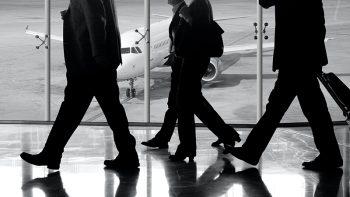
IATA and the Europe branch of Airports Council International (ACI Europe) are urging European governments to drop all travel restrictions for fully vaccinated travellers, as new EU guidance begins 01FEB.
The new guidance is based on the individual health status of travellers, not their destination of origin, which “is right to focus on a ‘person-based approach’ and to recognize that both vaccinated and recovered travellers should not be subjected to any restriction,” said Olivier Jankovec, ACI EUROPE Director General.
The EU guidance is not mandatory for member states to follow, and that’s why the two organizations are calling on member states to adopt the new approach.
“Having common EU regimes has so far not prevented States from going their own way. This must stop. We now have further proof – travel restrictions do have a significant effect – but it’s not on public health, it’s on economic stability and livelihoods. In short: they are causing more harm than good,” Jankovec added.
“The research is clear that the inevitable delay in identifying new variants means that transmission already occurs by the time travel restrictions are imposed. It’s the classic case of closing the stable door after the horse has bolted,” said Conrad Clifford, IATA Deputy Director General.
The two organizations’ statement cites newly-released research, conducted in Italy and Finland in DEC 2021, that shows that testing “on all incoming travellers made no distinguishable difference to transmission of Omicron cases in those countries.”
Furthermore, “Imposing these restrictions earlier – i.e. on the very day the Omicron variant was identified as an issue by the WHO – would not have stopped its spread nor significantly limited it in Italy and Finland.
“This is inherent to the fact that variants circulate well ahead of the time by which they are identified, which is the reason why both the WHO and ECDC generally consider travel restrictions to be ineffective.”
“Keeping testing in place for vaccinated passengers therefore seems completely ineffective from the health point of view, but damages passenger confidence and national economies,” IATA’s Deputy Director concluded.






